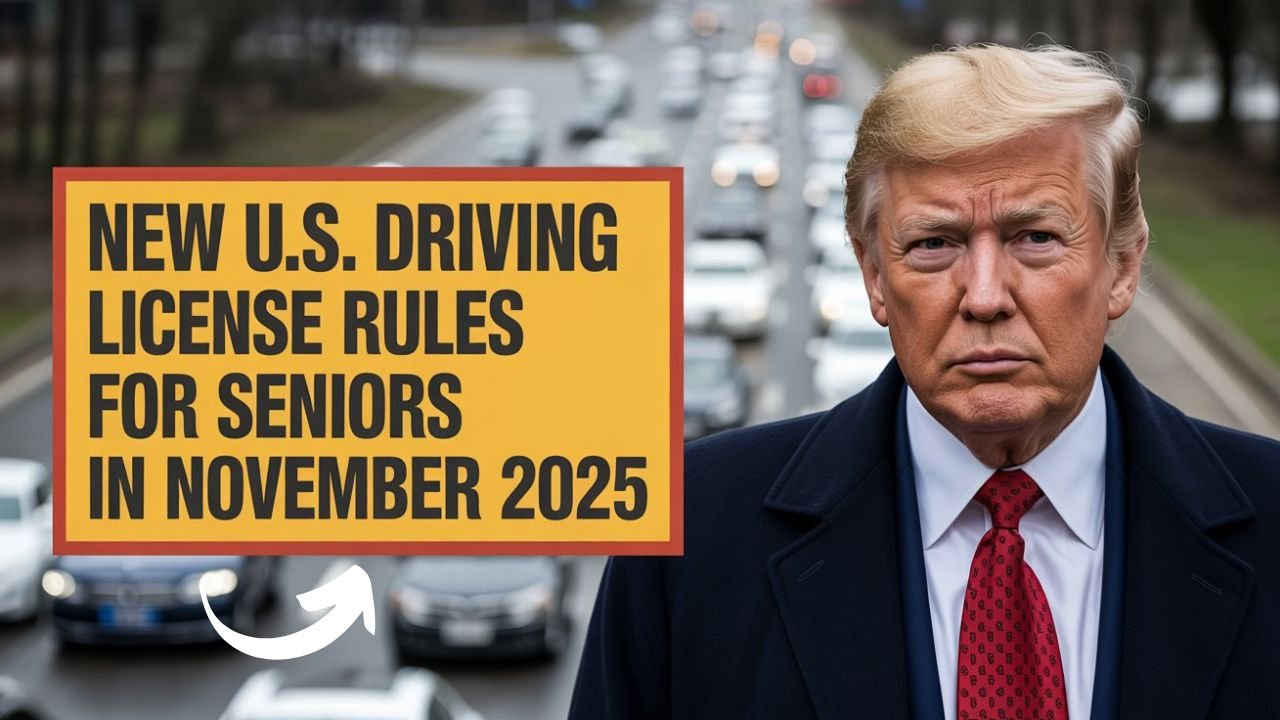Starting November 2025, the U.S. is implementing new regulations for drivers aged 70 and older. These changes are designed to improve road safety while balancing the independence of senior drivers. If you or a loved one are approaching this age, it’s crucial to understand what’s changing, how it affects your driving privileges, and the steps you need to take to stay compliant.
Overview of the New Rule
The new rule introduces enhanced testing and verification procedures for senior drivers. Key objectives include:
-
Ensuring that older drivers maintain the necessary vision, reflexes, and cognitive skills for safe driving.
-
Encouraging regular health and driving assessments.
-
Updating license renewal requirements for seniors across all U.S. states.
Under the new law, all drivers aged 70 and older must renew their licenses in person rather than online or by mail.
Key Changes Drivers Over 70 Should Know
-
In-Person License Renewal
Drivers must visit the DMV or licensing office to renew their licenses. Online renewals are no longer permitted for this age group. -
Mandatory Vision and Cognitive Testing
Seniors will undergo vision tests and cognitive screening to assess reaction times and decision-making ability. Those who do not meet the standards may be referred to a driving rehabilitation program. -
Shorter Renewal Periods
Licenses for drivers 70+ will now be valid for 4 years instead of the standard 8. This allows for more frequent assessments of driving capabilities. -
Medical Reporting Requirements
Seniors must provide updated medical information, especially if they have conditions that could impair driving, such as diabetes, heart conditions, or neurodegenerative diseases. -
Optional Defensive Driving Course Discount
Completing a state-approved defensive driving course may qualify seniors for insurance discounts and could be used to extend renewal periods. -
Technology Adaptation
Licensing offices may require a basic driving simulation test for those with certain medical conditions or after accidents, helping ensure continued safe driving.
Why These Changes Are Being Implemented
The number of senior drivers on U.S. roads is growing, and while many drive safely, statistics show an increased risk of accidents with age-related vision, reflex, or cognitive decline. These new measures aim to:
-
Reduce accidents involving older drivers
-
Promote responsible and safe driving
-
Provide a structured system for seniors to maintain independence while staying safe
Tips for Seniors Preparing for Renewal
-
Schedule your DMV appointment early — lines are expected to be longer after November 2025.
-
Bring all medical records and prescription lists.
-
Consider a vision check-up and minor cognitive exercises beforehand.
-
Take a defensive driving course to refresh skills and potentially reduce insurance premiums.
-
If driving skills are declining, explore alternative transportation options such as ride-sharing apps or community shuttle services.
FAQ: New Driving License Rule for Seniors
Q1: Who is affected by the new rule?
A: All U.S. drivers aged 70 and older must comply with the updated license renewal requirements starting November 2025.
Q2: Can seniors renew their licenses online?
A: No. Drivers 70+ must renew in person at their local DMV.
Q3: What tests are required for renewal?
A: Seniors must pass vision and cognitive tests. Some may also be required to take a driving simulation test based on medical history or past incidents.
Q4: How long will the new licenses be valid?
A: Licenses for drivers over 70 will now be valid for 4 years instead of 8.
Q5: Do I need to provide medical information?
A: Yes. Seniors must provide updated medical records, especially if they have conditions affecting driving safety.
Q6: Are there any benefits to taking a defensive driving course?
A: Yes. It may help with insurance discounts, extend renewal periods in some states, and refresh driving skills.
Q7: What happens if I fail the cognitive or vision test?
A: The DMV may refer you to a driving rehabilitation program or issue a restricted license based on results to ensure road safety.






